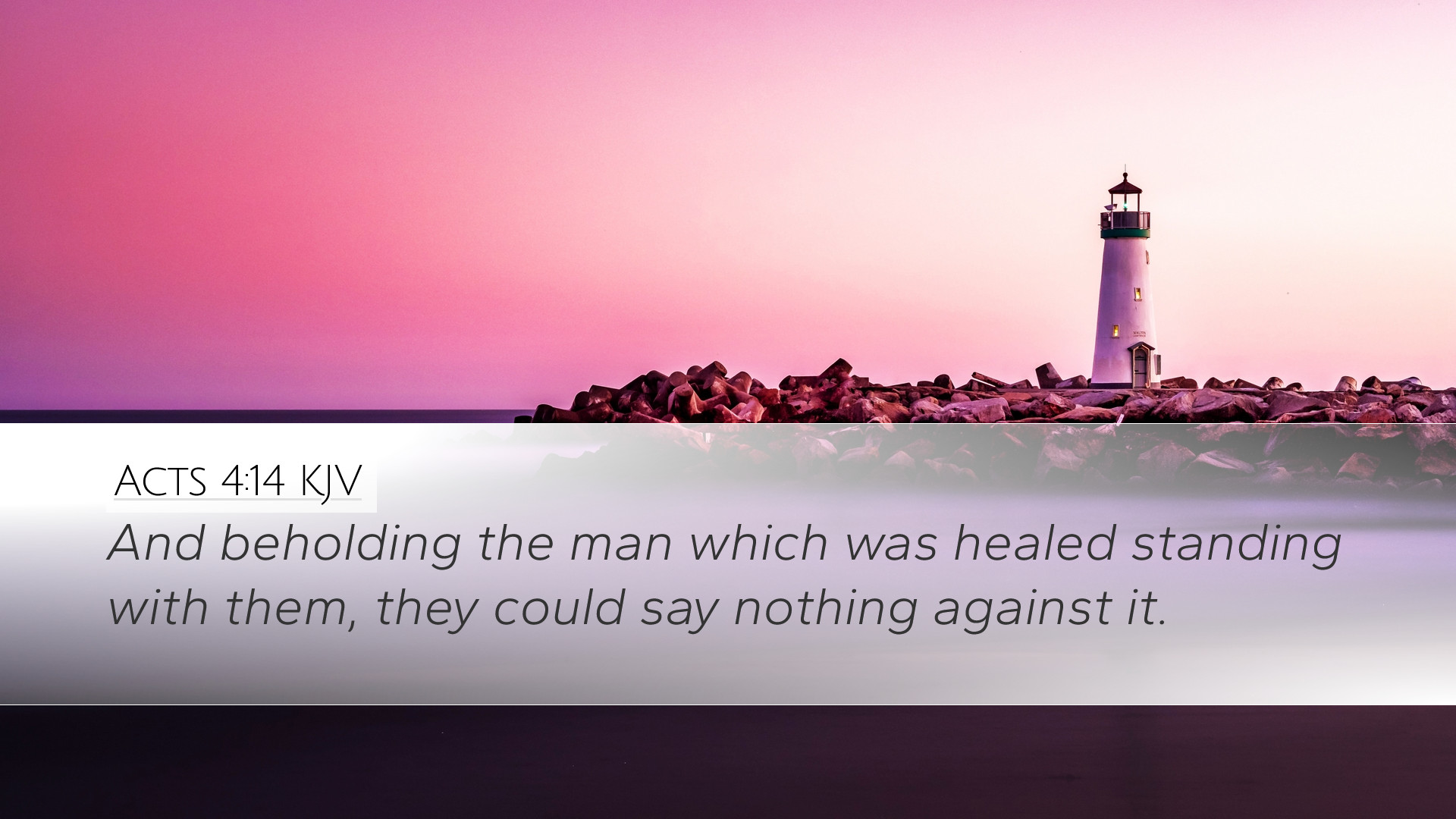Old Testament
Genesis Exodus Leviticus Numbers Deuteronomy Joshua Judges Ruth 1 Samuel 2 Samuel 1 Kings 2 Kings 1 Chronicles 2 Chronicles Ezra Nehemiah Esther Job Psalms Proverbs Ecclesiastes Song of Solomon Isaiah Jeremiah Lamentations Ezekiel Daniel Hosea Joel Amos Obadiah Jonah Micah Nahum Habakkuk Zephaniah Haggai Zechariah MalachiVerse
Acts 4:1 Acts 4:2 Acts 4:3 Acts 4:4 Acts 4:5 Acts 4:6 Acts 4:7 Acts 4:8 Acts 4:9 Acts 4:10 Acts 4:11 Acts 4:12 Acts 4:13 Acts 4:14 Acts 4:15 Acts 4:16 Acts 4:17 Acts 4:18 Acts 4:19 Acts 4:20 Acts 4:21 Acts 4:22 Acts 4:23 Acts 4:24 Acts 4:25 Acts 4:26 Acts 4:27 Acts 4:28 Acts 4:29 Acts 4:30 Acts 4:31 Acts 4:32 Acts 4:33 Acts 4:34 Acts 4:35 Acts 4:36 Acts 4:37

